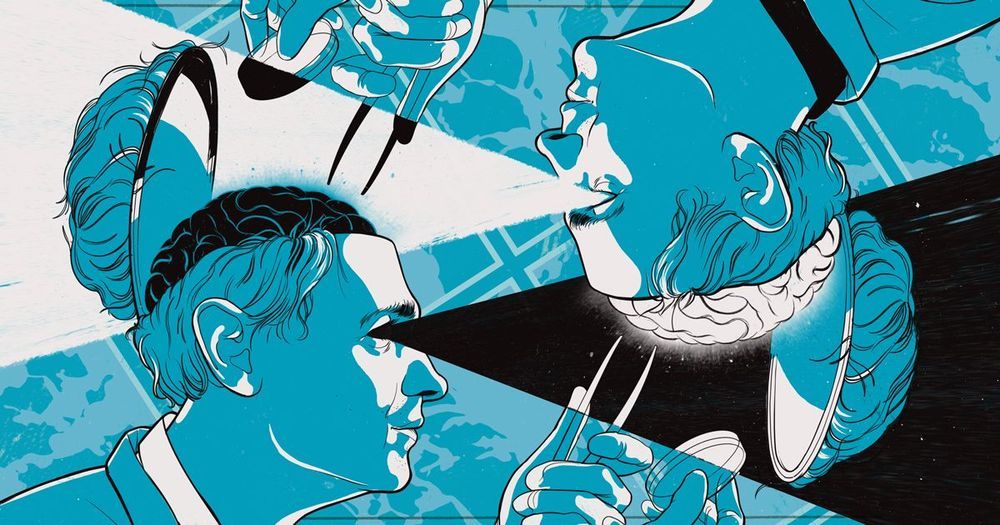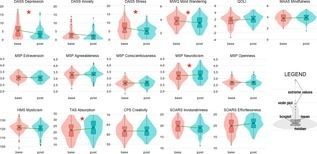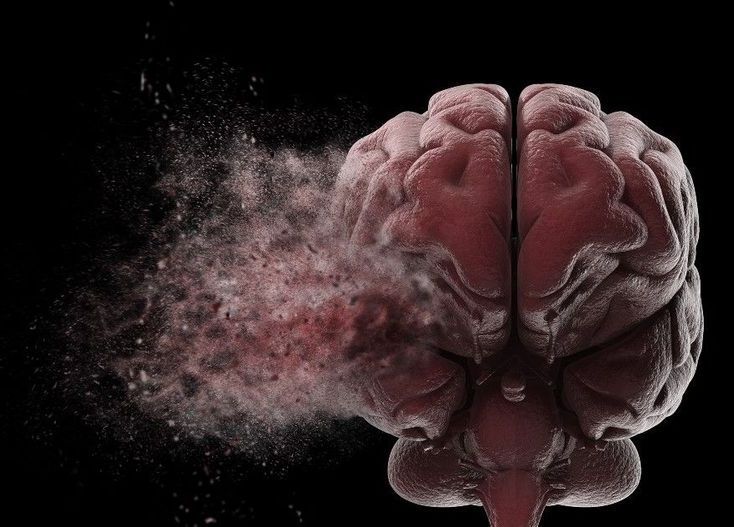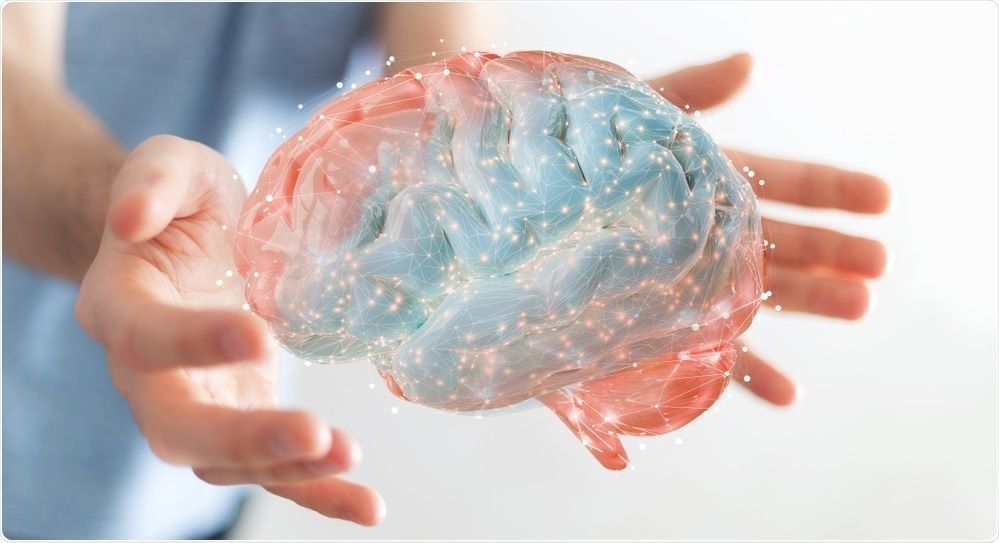Archive for the ‘neuroscience’ category: Page 674
Mar 6, 2019
Our brains reveal our choices before we’re even aware of them, study finds
Posted by Xavier Rosseel in categories: futurism, neuroscience
We believe that when we are faced with the choice between two or more options of what to think about, non-conscious traces of the thoughts are there already, a bit like unconscious hallucinations,” Professor Pearson says. “As the decision of what to think about is made, executive areas of the brain choose the thought-trace which is stronger. In, other words, if any pre-existing brain activity matches one of your choices, then your brain will be more likely to pick that option as it gets boosted by the pre-existing brain activity.
A new UNSW study suggests we have less control over our personal choices than we think, and that unconscious brain activity determines our choices well before we are aware of them.
Published in Scientific Reports today, an experiment carried out in the Future Minds Lab at UNSW School of Psychology showed that free choices about what to think can be predicted from patterns of brain activity 11 seconds before people consciously chose what to think about.
Continue reading “Our brains reveal our choices before we’re even aware of them, study finds” »
Mar 5, 2019
The people in Russia buying ‘immortality’
Posted by Paul Battista in categories: life extension, neuroscience
After Anton Zeldin’s wife was involved in a fatal car accident, he chose to have her brain frozen with the hope that she can one day be brought back to life. Video Journalist: Irina Sedunova.
Mar 5, 2019
“Holy Herb” Shows Promise as Alzheimer’s Treatment
Posted by Quinn Sena in categories: biotech/medical, neuroscience
Mar 4, 2019
Rejuvenating Aged Brains by Waking Up Dormant Stem Cells
Posted by Steve Hill in categories: biotech/medical, neuroscience
Researchers from the University of Luxembourg and the German Cancer Research Center have rejuvenated stem cells in the brains of old mice. The rejuvenated stem cells appear to improve regeneration in areas of damaged or diseased brain tissue.
A new way to model stem cells
A new study that was published in the journal Cell sheds light on why many stem cell populations in aged brains stop dividing and enter a dormant state known as quiescence. Quiescent stem cells have ceased to divide, so they no longer support the tissues of which they are part and play no role in regenerating damaged tissue by supplying fresh cells to replace losses. As we age, an increasing number of stem cells, not just in the brain, enter this quiescent state and impair our ability to heal injury and recover from diseases.
Continue reading “Rejuvenating Aged Brains by Waking Up Dormant Stem Cells” »
Mar 3, 2019
A systematic study of microdosing psychedelics
Posted by James Christian Smith in categories: climatology, health, law, neuroscience
The phenomenon of ‘microdosing’, that is, regular ingestion of very small quantities of psychedelic substances, has seen a rapid explosion of popularity in recent years. Individuals who microdose report minimal acute effects from these substances yet claim a range of long-term general health and wellbeing benefits. There have been no published empirical studies of microdosing and the current legal and bureaucratic climate makes direct empirical investigation of the effects of psychedelics difficult. In Study One we conducted a systematic, observational investigation of individuals who microdose. We tracked the experiences of 98 microdosing participants, who provided daily ratings of psychological functioning over a six week period. 63 of these additionally completed a battery of psychometric measures tapping mood, attention, wellbeing, mystical experiences, personality, creativity, and sense of agency, at baseline and at completion of the study. Analyses of daily ratings revealed a general increase in reported psychological functioning across all measures on dosing days but limited evidence of residual effects on following days. Analyses of pre and post study measures revealed reductions in reported levels of depression and stress; lower levels of distractibility; increased absorption; and increased neuroticism. To better understand these findings, in Study Two we investigated pre-existing beliefs and expectations about the effects of microdosing in a sample of 263 naïve and experienced microdosers, so as to gauge expectancy bias. All participants believed that microdosing would have large and wide-ranging benefits in contrast to the limited outcomes reported by actual microdosers. Notably, the effects believed most likely to change were unrelated to the observed pattern of reported outcomes. The current results suggest that dose controlled empirical research on the impacts of microdosing on mental health and attentional capabilities are needed.
Citation: Polito V, Stevenson RJ (2019) A systematic study of microdosing psychedelics. PLoS ONE 14: e0211023. https://doi.org/10.1371/journal.pone.
Editor: Danilo Arnone, King’s College London, UNITED KINGDOM
Continue reading “A systematic study of microdosing psychedelics” »
Mar 2, 2019
The good kind of fat
Posted by Paul Battista in categories: biotech/medical, neuroscience
Metastasis is the leading cause of death from cancer, occurring when cancer cells separate from the original tumor to proliferate elsewhere. These new cancer cells travel through the bloodstream or lymphatic system. Since these bodily systems are thoroughly connected, cancer can spread to a variety of locations. Breast cancer, for example, “tends to spread to the bones, liver, lungs, chest wall, and brain.”
Cancer cell plasticity — an ability that allows cancer cells to shift physiological characteristics dramatically — fosters metastasis and is responsible for cancer’s resistance to treatments. To combat its resistance, researchers at the University of Basel in Switzerland decided to turn cancer’s cellular plasticity against itself. They used Rosiglitazone, an anti-diabetic drug, along with MEK inhibitors in mice implanted with breast cancer cells. Their aim was to alter the cancer cells.
The drug combination hijacked the breast cancer cells during epithelial-mesenchymal transition (EMT), a process by which the cells undergo biochemical changes. EMT plays a role in many bodily functions, such as tissue repair. In unaltered cancer cells, EMT allows them to migrate away from the original tumor while maintaining their oncogenic properties.
Mar 1, 2019
The Brain That Remade Itself
Posted by Genevieve Klien in categories: biotech/medical, neuroscience
Doctors removed one-sixth of this child’s brain — and what was left did something incredible.
Feb 28, 2019
Boosting Cellular Housekeeping with Exercise and Fasting
Posted by Steve Hill in categories: biotech/medical, health, neuroscience
In order to remain healthy and functional, cells have a number of maintenance systems that help them to dispose of metabolic waste and unwanted proteins. Autophagy is perhaps the best-known example of how cells purge their waste, and another is the ubiquitin-proteasome system (UPS). Researchers are working on ways to boost the activity of the UPS to improve cellular health.
The ubiquitin-proteasome system
During normal cellular function, proteins being constructed in the cell can sometimes become misfolded and start to accumulate over time, which can cause the cell to become dysfunctional and encourage diseases such as Alzheimer’s to develop as the system gums up with bent and broken proteins.
Continue reading “Boosting Cellular Housekeeping with Exercise and Fasting” »
Feb 27, 2019
Pioneering trial offers hope for patients with Parkinson’s disease
Posted by Paul Battista in categories: biotech/medical, neuroscience
In a pioneering new clinical trial, researchers have succeeded in delivering a cell-restoring drug directly to the brains of patients with Parkinson’s disease.


















